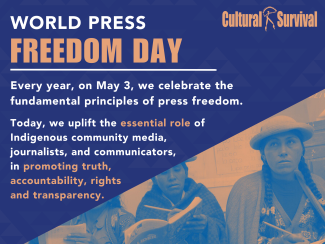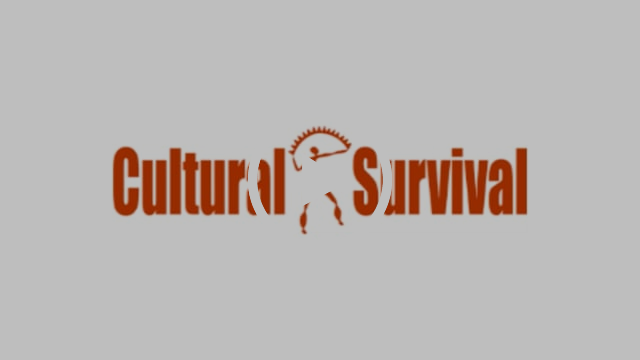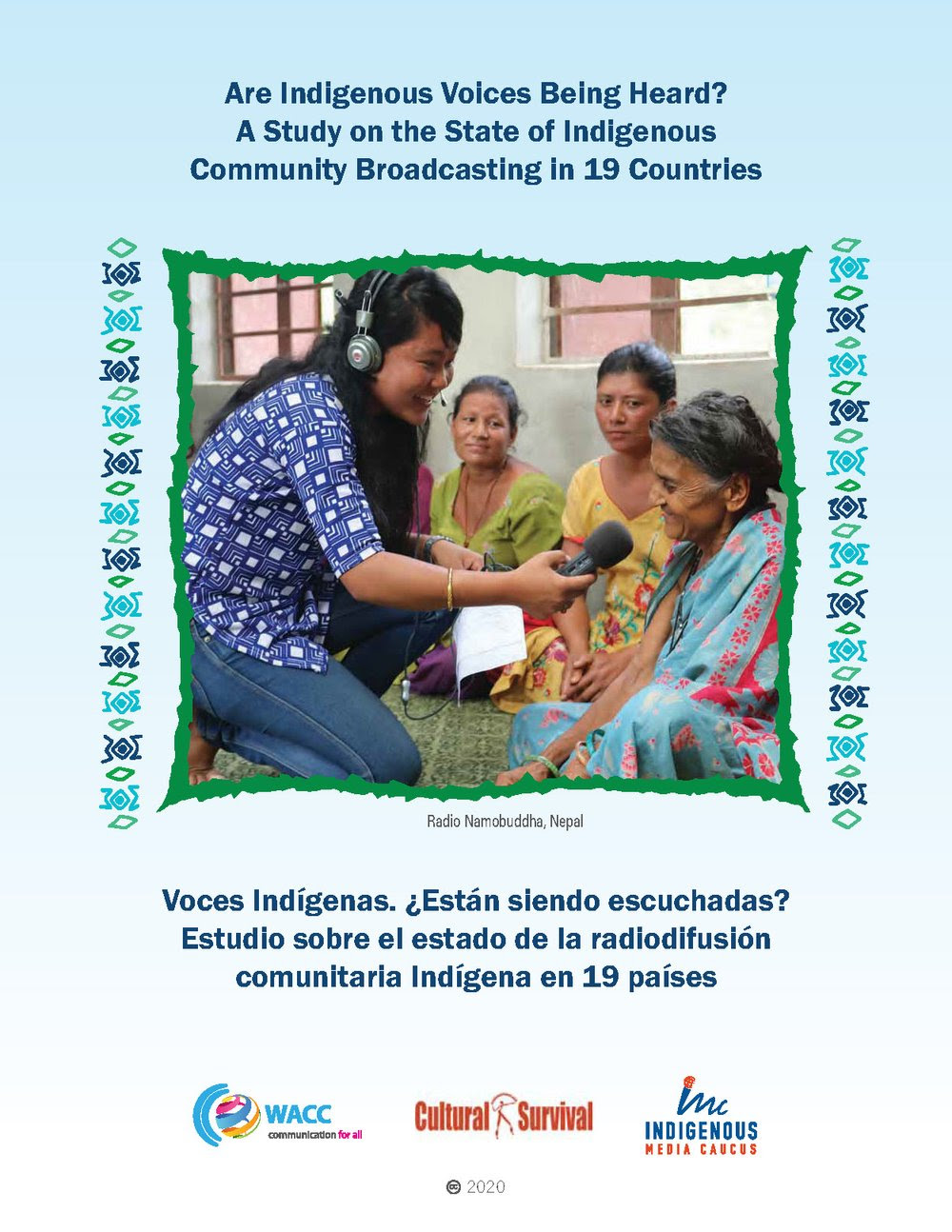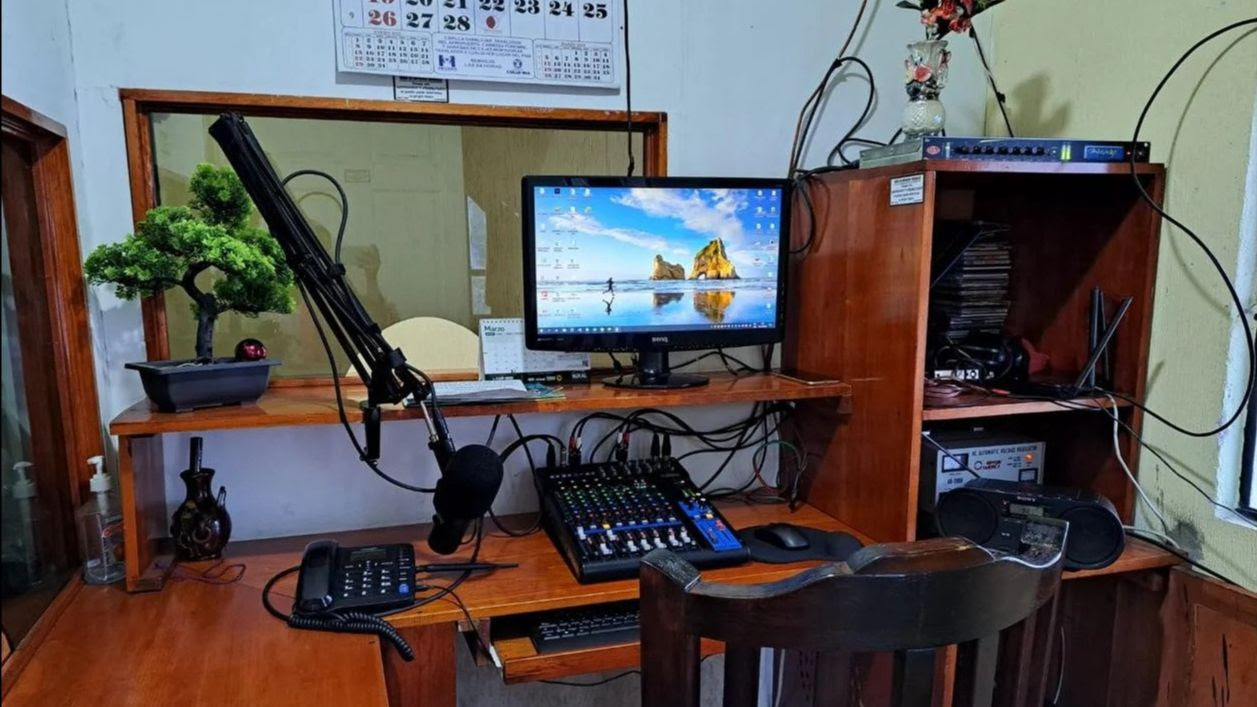|
World Press Freedom Day Is Observed on May 3
3 Mei 2024agnes

Every year, on May 3, we celebrate the fundamental principles of press freedom. World Press Freedom Day was first proclaimed by the UN General Assembly in 1993 in response to a call by African journalists who in 1991 produced the landmark Windhoek Declaration on media pluralism and independence. In 2024, World Press Freedom Day is dedicated to the importance of journalism and freedom of expression in the context of the current global environmental crisis.
Today is an opportunity to highlight the essential role of Indigenous community media, journalists, and communicators, to inform of violations of press freedom, and to remind people that in dozens of countries around the world, publications are still censored, fined, suspended, raided, and shut down, while journalists, producers, editors, and publishers are harassed, attacked, detained and even killed.
Indigenous community radio stations are operated, owned, and influenced by the communities they serve. They provide a platform for communicators, groups, and communities to tell their own stories, to share experiences, and to become creators and contributors of media. They broadcast content that is popular and relevant to a local audience but is often overlooked by commercial broadcasters.
Today is also a call to action for governments to respect their commitment to press freedom also serves as a day of remembrance for those journalists who lost their lives in telling the truth.
8 Things You Can Do Today!
1. Learn about the Indigenous Media and Communications Caucus and Get Involved.
At the 23rd Session of the United Nations Permanent Forum on Indigenous Issues (UNPFII) on April 15- 26, 2024, the Global Indigenous Media Caucus submitted an intervention highlighting the challenges faced by Indigenous journalists carrying out fully Article 16 of the UN Declaration on the Rights of Indigenous Peoples: the right to freely establish and/or access media that duly reflects Indigenous realities. Read more.
Also watch Decolonizing the Narrative: Empowering Young Indigenous Storytellers – Panel by Indigenous Media Caucus at the UNPFII Indigenous Media Zone.
2. Read and listen to the Intervention in the 23rd Session of the United Nations Permanent Forum on Indigenous Issues Delivered by the Maya Lawyers Association and Cultural Survival
3. Celebrate Human Rights and Indigenous Peoples Clinic at Suffolk University and the Association of Maya Lawyers and Notaries in Guatemala Receiving the 2024 Columbia Global Freedom of Expression Prize
On April 11, 2024, Columbia Global Freedom of Expression (CGFoE) revealed the winners of the 2024 Columbia Global Freedom of Expression Prizes. In particular, the Prize recognizes the work of: Nicole Friederichs, Lead Counsel and Director of the Human Rights and Indigenous Peoples Clinic at Suffolk University, Law School, and Cultural Survival Board Member; Amy Van-Zyl Chavarro, Of-Counsel of the Human Rights and Indigenous Peoples Clinic at Suffolk University, Law School; Cristian Otzin (Maya Kakchiquel), Legal advisor at the Association of Maya Lawyers and Notaries in Guatemala and Cultural Survival Legal Fellow; and Adriana Sunun Pablo (Maya Kakchiquel), Legal advisor at the Association of Maya Lawyers and Notaries in Guatemala, and Cultural Survival Legal Fellow. Read more.
4. Listen to our Conversation with Andrew Arinitwe from Uganda on Free and Fair Journalism
At the 23rd Session of the United Nations Permanent Forum on Indigenous Issues (UNPFII) on April 15- 26, 2024, in the Indigenous Media Zone, we spoke to journalist Andrew Arinitwe from Uganda who was recently arrested for his work. Watch here.
5. Listen to a Message from Members of the Indigenous Media Caucus on World Press Freedom Day.
6. Learn about the State of Indigenous Community Radio in the World.
Radio is one of the most accessible platforms for Indigenous Peoples and, in many countries, this has resulted in an active community radio movement. Small, community-based radio stations may seem like an outdated mode of communication, but for many Indigenous Peoples the low cost of radio makes it the ideal tool for defending their cultures, lands, natural resources, and rights. Read more. Read Are Indigenous Voices Being Heard? “A Study on the State of Indigenous Community Broadcasting in 19 Countries.”
En español
7. Listen to Radio Programs on the Importance of Indigenous Community Media.
Threats to Indigenous Journalists Must End!
Indigenous journalists around the world reiterate that Indigenous Peoples’ rights are also human rights. Listen here.
Freedom of the Press Is the Foundation of Justice
Radio Is Still the Voice of the Voiceless
Radio has contributed to the resilience of Indigenous communities all over the world — hear some of these stories in this program commemorating World Radio Day. Listen here.
Broadcasting Is Not Easy – !Xun And Khwe Of Namibia
In this podcast, we hear from Disco Koki (!Xun), one of the trainees, who came to South Africa to receive training at XK FM, the South African government-funded radio station set up to amplify San people’s voices. Listen here.
What Radio Means To Us – Eldos FM South Africa
In this radio program, we hear from field reporter Eldero van Heerden as well as news anchor and presenter Lucinda Borman, and they tell us about their experiences as broadcasters. Eldos FM broadcasts in Afrikaans and English. Listen here.
The Power of Community Radio
Dev Kumar, from Nepal, explains why the radio is a powerful tool for Indigenous Peoples to have their voices heard. Listen here.
Radio Comunitaria y Días de Amar la Tierra
En este programa especial conoceremos de una Radio Comunitaria en Boca de Sábalo, Rio San Juan, Nicaragua quienes al igual que muchas Radios Comunitarias Indígenas están ocupadas en abanderar la lucha por la madre tierra y nuestros bienes comunes.Escucha aqui.
La Radio, Medio de Expresión y de Lucha de los Pueblos
Los desafíos que enfrentan los comunicadores para hacer de sus medios comunitarios un espacio legal sin tener que sufrir persecución del Estado como si la Libertad de Expresión fuera un delito.
Entrevistamos a Rosa Ajanel de Guatemala y Anelio Merry López, dos comunicadores Indígenas que nos cuentan la situación de las radios comunitarias en cada uno de sus contextos. También incluimos en este programa el mensaje que Irina Bakova, directora general de la UNESCO entre 2009 y 2017, lanzó en el marco del Día de la Radio. Las tres coinciden en la importancia que tiene la Radio para las comunidades y lo consideran un Derecho Humano que hay que defender. Escucha aqui.
8. Read about How Indigenous Community Media Is Uplifting Indigenous Rights.
The First Steps of Community Radio La Niña
“On November 26, 2006, more than 20 people met in Chuicaxtún, Canton Chivax, Totonicapán, Guatemala, to create the project of Community Radio La Niña 88.5 FM. Without any prior technical knowledge of radio broadcasting, production, programming, administration, or how to install a transmitter, we took our first steps in community communication.” Read more. En español
Read about our 2023 Indigenous Community Media Fund Grant Partners. En español

.png)











